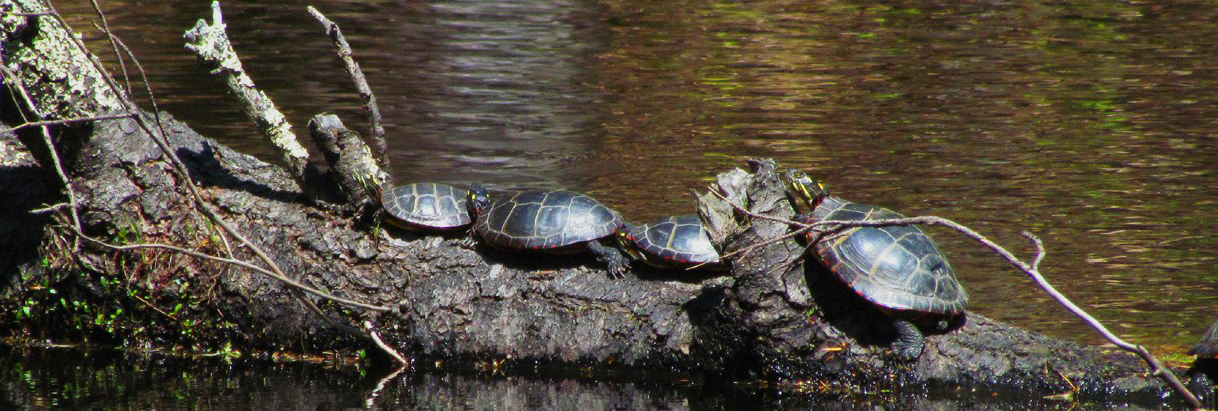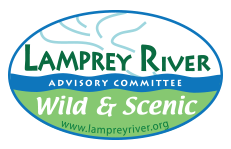State: the New Hampshire Rivers Management and Protection Program
The Lamprey first became part of the NH Rivers Management and Protection Program on June 26, 1990. This initial designation affected the river in Lee and Durham only. On June 11, 2011, the rest of the river and its major tributaries (North Branch, Pawtuckaway, North, Little, and Piscassic rivers) were also designated. This second designation was the first time a major river and its tributaries were considered as one functional, ecological unit and it should result in more integrated protection for the river among the towns.
What is the NH Rivers Management and Protection Program?
According to the NH Dept. of Environmental Services website,
“The New Hampshire Rivers Management and Protection Program (RMPP) was established in 1988 with the passage of RSA 483 to protect certain rivers, called designated rivers for their outstanding natural and cultural resources. The program is administered by the New Hampshire Department of Environmental Services (NH DES).
For a river to be designated for protection, an interested individual or organization must first develop a nomination outlining the river's values and characteristics. Support by local municipal officials and residents of the riverfront communities for the designation must also be sought and reported. Once completed, the nomination is submitted to the DES Commissioner and, if and when approved, forwarded to the General Court for consideration. If the Legislature approves the nomination, looking closely at the level of local support and presence of important river values, and if the Governor signs the bill, RSA 483, is amended to designate the river for protection under the program.
After designation, a management plan is developed so that the outstanding qualities of the river may be protected for future generations. The plan is developed and implemented by a volunteer local river advisory committee that also coordinates activities affecting the river on a regional basis. A typical plan identifies management goals and recommends actions that may be taken to protect the resources identified in the nomination. At the state level, the Department of Environmental Services assists with the development and implementation of the management plan and enforces regulations concerning the quality and quantity of flow in protected river segments.”
Click the link to learn more about the NH Rivers Management and Protection Program.
What are the duties of the Local River Management Advisory Committee (Lamprey River Advisory Committee)?
The committee's main duties are to guide river management:
- develop a river management plan
- review and comment on development, permitting, and other issues affecting the river
What does designation do for the river?
The program establishes important state policies for the Lamprey, including:
- a "protected instream flow" plan to ensure adequate, year-long river flow that resembles natural flow conditions as closely as possible, largely through flow management of existing dams
- a prohibition against new dams and interbasin transfers of water
- tighter state provisions for the protection of water quality, assessing channel alteration activities, and the setback of new solid waste facilities.
Because adjacent land use is not regulated by the state program, local zoning authorities are not affected. The management plan may make recommendations for zoning or other local regulatory changes, but these can be implemented only through standard, local procedures. The state program does not authorize any state funding for the committee or for protection and management of the river.
What role does the state have in creating the advisory committee?
Each town is allowed to nominate up to four representatives. The names of these residents are sent to NH DES for review and official appointment by the DES commissioner. The term of each representative is three years. If you live in a town along the river or the designated tributaries and would like to join the committee, please click here for the required representative application form. If you have questions, please contact Tracie Sales, NH DES Rivers and Lakes coordinator at tracie.sales@des.nh.gov.

